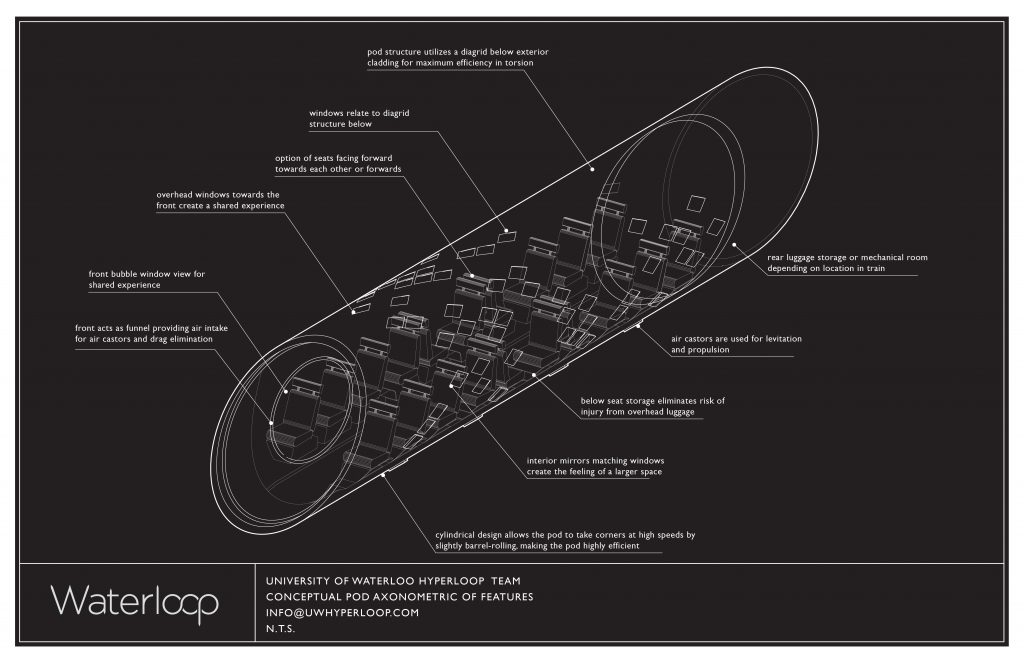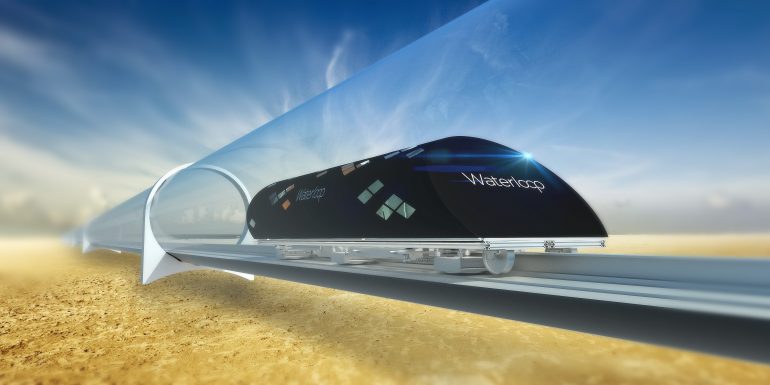It all started with a Reddit post.
When SpaceX put out an announcement promising that they would built a test track for a hyperloop if qualified teams built the prototypes, University of Waterloo student Nicholas Achkarian put a post on Reddit last June asking his community if any fellow students were interested in forming a team to create a prototype.
Little did he know, Achkarian would create the foundation for Waterloop, which is now one of only 22 teams to make the shortlist in SpaceX’s international competition — which started out with 1,200 participants. Ranging from undergrads to master’s students, the Waterloop team is set to test its Waterloop design on SpaceX’s test track in California in 2016.

As a team of students designing a complex prototype for what could be the travel method of the future, exterior design lead Darian Zigante acknowledges there are many challenges for such an ambitious project within the timeline, especially when considering how the design can actually scale.
“We’re a team working with tech that is brand new to us which is incredibly exciting. It has this whole element of surprise and we need to focus on testing and understanding the tech before we go into final design stage,” he said.
The team is working on sourcing materials from wherever they can find it, and sampling materials to test in different environments and different extremities; most recently, they had their levitation module shipped.
“We’re talking about 1,000 km an hour travel, and the tube itself has to be as small of a radius as possible for cost-efficiency when they’re building the track. Those things put together mean that experience inside vehicle will be very different from a typical train or plane,” said Montgomery de Luna, the architectural design lead for Waterloop. “In our renders we show things that can be windows, or TV screens showing an experience, and we’re trying to make actual journey as comfortable as possible given you’re going to be in something slightly smaller than an airplane in size.”
The University of Waterloo has long been known as one of the hearts of Waterloo’s globally-recognized innovation ecosystem. The University’s president has said in the past that fostering its ‘free spirit’ towards innovation was intentional, and the university often gets shout outs from some of the top thought leaders in engineering and startups in the world.

When it came to the competition, Zigante joked there was some process of convincing the school that they were actually legit, considering the scale seemed “unbelievable”, but the school eventually trusted the students to put in the time and dedication. The team has raised funding from sources within the faculty of engineering, and is currently working out of the university’s Engineering 5 building, where they have access to helpful resources like 3D printers and laser cutters.
“I was a bit of an outsider to Waterloo originally, and it’s staggering the amount of energy and ambition that has come through this team, and that kind of vibrance in our community is really strong,” said de Luna. “I’ve personally learned about how many resources there are and how ambitious we can be and how successful we are. The kind of community that’s happening in Waterloo is really special, and something that I haven’t seen in many places.”
Regardless of how the competition turns out, the team is excited that the competition is totally open source and that it’s started a conversation around the future of transportation — a much-needed one in North America, where our antiquated transit systems are literally keeping us from taking advantage of talent in certain areas.
“We really have a big problem of relying on highway networks or domestic air travel. So promoting high speed public transit instead is a good model because it’s a lot more efficient than flying in a jet plane. I think it’s a very significant and clear cultural shift towards what’s ultimately going to be more sustainable model,” said de Luna.
Zigante added, “It’s exciting to see Canada on the front end, you wouldn’t normally see countries with smaller populations making headway in infrastructure and transportation but I think that’s changing, and hopefully we’re going to be stepping stone.”


